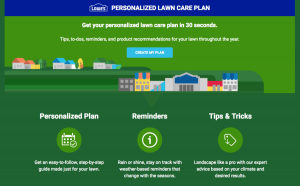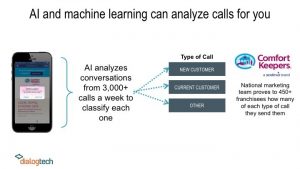Imagine yourself as an inside sales rep, you pound the phones day in and day out trying to qualify leads. You navigate accounts, build pipeline, and then finally your efforts pay off and someone answers. You pass them…score! You feel a great sense of accomplishment as you get the calendar invite scheduled connecting your field sales rep and the prospect. Cut to a week or two later when the call is set to happen and you get the dreaded email from your sales rep…
“I sat on the conference bridge for 10 minutes and no one showed up”
Crap. Now what do you do? A wave of anxiety overcomes you as you think “it was hard enough getting this prospect on the phone in the first place!” So you spend a week or two calling them, chasing them, offering them your first born child in order to get them to reschedule.
No shows are the worst and it’s a situation no rep likes to get themselves into. It’s a time suck, it distracts you from finding new prospects to qualify, and worst of all it can affect your compensation should the appointment never actually take place.
When ramping new clients I like to walk them through this exact scenario to demonstrate how following our best practices can decrease the number of no shows.
Best Practices
Send Invites Immediately
The first is probably the hardest for some clients/field reps to buy into as it requires them to relinquish a little bit of control, but stick with me here. The best practice here is to leave the initial scheduling (and potential rescheduling) to the ADR/SDR/ISR. I know some reps don’t like sharing their calendar and I know they sometimes want to be the one who is in control of the meeting. But when you think about it, this prospect has no idea who you are. If an ISR has an established rapport with a prospect, isn’t it better that the initial invite come from a familiar name? Good, I’m glad you can agree with me on that. Additionally, we have found that an invite is most likely to get accepted if it is sent to a prospect within 15-20 minutes of the initial call with an ISR. Field sales reps are busy, they could be traveling or at an onsite with an existing customer. They may not have the time to be able to get an invite out as quickly as necessary.
Set Reminders
The second best practice has more the do with the rep who is scheduling. We’ve established no shows are the worst and you would hate to see all your hard prospecting work go to waste. So, make sure you have a process designed to prevent no shows from happening. Ideally when scheduling calls we try to make sure calls are scheduled for 1-2 weeks out, at most. Even in that amount of time the memory of your initial call can fade for a prospect. Therefore, you want to make sure you remind them about any scheduled appointments and required follow up. Use your CRM to set a task to follow up with the prospect the day before the appointment is scheduled to occur. Be sure to try to reach them live on the phone first, and then follow up with an email to make sure the date/time still works for them. It’s much more proactive to do that than risk a no show because there was a last minute conflict.
Join Together
Another way reps can prevent sales no shows is to sit on the calls themselves. This is valuable for a variety of reasons. The ISR gets a chance to hear the pitch of a more seasoned rep and subsequently adopt some of those strategies into their own. They will also get real-time feedback regarding how promising of an opportunity it was AND if the prospect flakes they can quickly reach out within the scheduled time frame and see what the deal is.
Following these best practices can help to minimize the amount of no shows that occur within the beginning stages of the sales cycle. As the prospective customer moves down the funnel the addition of increased interest, mutual understanding, and deeper engagement should help solve against future no shows further in the process. What do you do to make sure the first sales appointment between the field rep and a prospect has the best chance of happening?
Business & Finance Articles on Business 2 Community(118)




